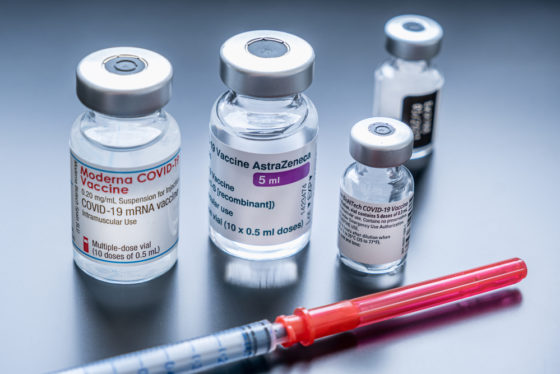Covid-19 vaccination campaign held back by poor planning, safety board finds


The Dutch vaccination programme against Covid-19 was held back because the government’s initial plan was too reliant on family doctors, a report by the safety council has concluded.
In the second of three reports into the government’s response to the coronavirus crisis, the OVV said preparations to set up vaccination centres through the local health board (GGD) network only started in December 2020, a month before the first jabs were given.
The Netherlands was the last country in the EU to begin vaccinating its citizens in January 2021 and lagged behind the rest of Europe for most of the first half of the year.
The cabinet believed the coronavirus vaccine could be distributed through the same networks as the annual flu jab, the OVV found. ‘Other scenarios were not prepared,’ it noted.
It assumed most people would be given the AstraZeneca vaccine, which can be stored in regular fridges in small quantities, but the Pfizer vaccine, which has to be kept at minus 70C, became the most commonly used type.
‘When it became clear in December 2020 that a different vaccine, which was not suitable for vaccination in doctors’ surgeries, would be available first, vaccination centres had to be set up quickly,’ the OVV said in an explanatory video.
The report said many people who were eligible for the flu vaccine because of their health conditions felt exposed because they were not put on the priority list for the coronavirus jab, which used narrower criteria set by the health council (Gezondheidsraad).
Lack of monitoring
The OVV also said it was still clear if measures to prevent the spread of infection, such as wearing face masks in public and the curfew between February and April 2021, had been effective.
It was impossible to draw conclusions because the cabinet had not ‘monitored and evaluated’ the impact of the rules, the OVV said. It urged ministers to build up a stock of knowledge so that it can make better-informed decisions in response to future pandemics.
The second of the OVV”s three scheduled reports covered the period from September 2020, when the second wave caused by the Alpha variant began, until July 2021.
In its report on the first wave, the safety board criticised the government’s lack of expertise and improvised response to the initial outbreak, which led to a ‘silent disaster’ in the country’s nursing homes.
Ministers said they would study the board’s latest findings over the next few weeks and publish a detailed response. The final part of the OVV’s report, covering the period since July 2021, is expected to be published next year.
Thank you for donating to DutchNews.nl.
We could not provide the Dutch News service, and keep it free of charge, without the generous support of our readers. Your donations allow us to report on issues you tell us matter, and provide you with a summary of the most important Dutch news each day.
Make a donation